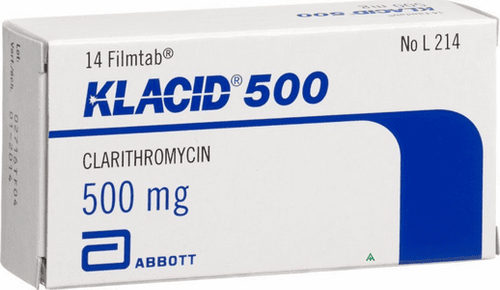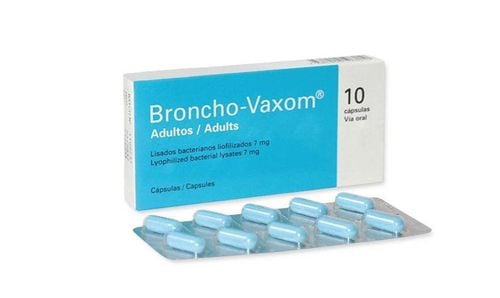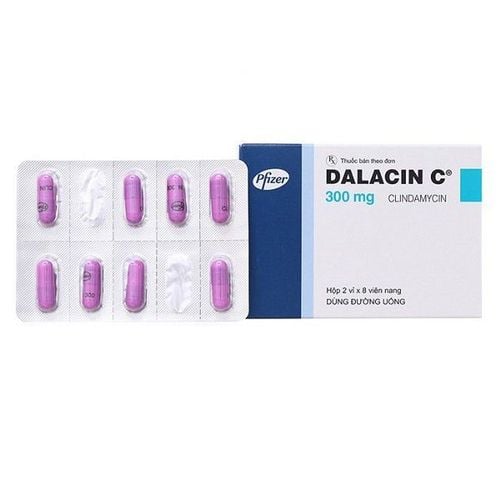Sinusitis is inflammation of the paranasal sinuses due to allergies or fungal, bacterial, or viral infections. Sinusitis worsens, becomes chronic sinusitis or recurs many times if not treated appropriately from the beginning. And if you have sinusitis that spits up blood, it means that your sinusitis has been and is getting worse, go to a specialist clinic for advice and appropriate treatment.
1. What Causes Sinusitis That Leads to Coughing Up Blood?
How sinusitis, and sinusitis with coughing up blood, happens:
Any cause that makes the nasal lining swell and block the sinus opening will lead to trapped air inside the sinus. Oxygen in the sinus is absorbed into the bloodstream of the mucous lining, creating negative pressure (known as “vacuum sinusitis”). This is the start of sinusitis. If the negative pressure continues, mucus builds up inside, creating a perfect environment for bacteria, viruses, and fungi to grow. These germs can enter the sinuses through the sinus opening or spread from nearby cells. White blood cells and serum appear to fight off infection, increasing pressure and pain inside the blocked sinus. The lining becomes congested and swollen, causing sinusitis.
The nose has many blood vessels both at the front and back. These tiny blood vessels are very delicate and can break easily. When you have sinusitis, it’s simpler for these vessels to rupture, causing bleeding from the front or back of the nose. If bleeding comes from the back of the nose, or you inhale blood-stained mucus from the front, you might cough it up. Below are some specific causes.
1.1 Blowing Your Nose Too Hard or Too Often
Sinusitis often comes with thick yellow or greenish mucus draining from the nose or down the throat, along with swelling of the nasal lining that blocks airflow. This is a common symptom of sinus infections. If the sinusitis is acute, it may be short-lived. But with chronic or frequently recurring sinusitis, you may feel the need to blow your nose often. Blowing forcefully may damage the blood vessels in the nose and lead to coughing up blood.

1.2 Frequent Sneezing
Frequent sneezing is common in allergic sinusitis. Allergies are tricky because they can easily return if the allergen is not identified or avoided. The mechanism here is similar to blowing your nose too hard—frequent sneezing can rupture fragile blood vessels and cause blood-tinged mucus that you might cough up.
1.3 Infection
In all types of sinusitis (chronic, acute, subacute, or recurrent), whether caused by bacteria, viruses, fungi, or allergies, the nasal lining becomes swollen and congested. This makes the delicate nasal mucosa even more prone to bleeding, especially when the sinusitis becomes severe and prolonged.
1.4 Improper Use of Nasal Sprays
Patients with sinusitis are often advised to use saline nasal sprays to clean and moisten the nose. However, if you spray too forcefully, you can damage the already inflamed nasal lining, causing bleeding. Sometimes, corticosteroid nasal sprays are prescribed to reduce swelling, but using them too often or long-term (chronic or recurrent sinusitis) may thin the nasal lining and lead to bleeding.

1.5 Weather Changes
Unusual weather, especially cold and dry conditions, can worsen sinusitis and make it hard to treat. Dry weather can crack the nasal lining, causing blood vessels to break and leading to bloody mucus that you may cough up.
1.6 Eating Too Many Spicy or Hot Foods
In traditional Eastern medicine, there isn’t an exact term for sinusitis, but it is linked to a condition called “tỵ uyên.” Overeating spicy, hot, greasy, or sweet foods for a long time can create excess internal heat (damp-heat), worsening sinus inflammation. Too much heat can cause sinusitis to become severe and lead to coughing up blood.
1.7 Nasal Polyps
Nasal polyps are benign growths that can either cause sinusitis or form due to long-term chronic sinusitis. Chronic inflammation changes blood vessel permeability and causes fluid retention in tissues, eventually leading to polyp formation. Polyps cause symptoms like difficulty breathing, nasal congestion, runny nose, and changes in sense of smell. They can complicate sinus conditions. Since they can occur in areas rich in blood vessels (like Kisselbach’s plexus), nasal polyps may cause bleeding, leading to coughing up blood.
1.8 Sinus Cancer
Cancer in the paranasal sinuses is rare. Most cases occur in the maxillary and ethmoid sinuses. While the exact cause is unclear, chronic sinusitis may play a role. Sinus cancer often presents late because the sinuses have space for the tumor to grow unnoticed. Symptoms may include pain, nasal blockage, runny nose, bleeding from the nose or coughing up blood, double vision, ear pain or ringing, facial numbness, or loose teeth beneath the affected sinus.
2. How to Handle Coughing Up Blood Due to Sinusitis?
2.1 On-the-Spot Treatment
First, stop the bleeding. Lean forward slightly instead of tilting your head back, to avoid increasing pressure. Gently pinch your nose for 10-15 minutes to control bleeding.
2.2 See a Doctor
After controlling the bleeding, visit a specialist for proper examination and treatment. This is especially important if sinusitis is complicated by other conditions such as nasal polyps or sinus cancer.
If your coughing up blood is due to sinusitis alone, thorough treatment of the sinusitis is necessary. Acute sinusitis can be managed with medication, nasal care, and supportive measures. Chronic sinusitis is more complex and may require longer treatments, sometimes involving both medical and surgical approaches.
In summary, if you have sinusitis and start coughing up blood, it’s a serious sign that your condition is worsening. Take steps to stop the bleeding and seek medical care promptly for appropriate evaluation and treatment.
Please dial HOTLINE for more information or register for an appointment HERE. Download MyVinmec app to make appointments faster and to manage your bookings easily.













